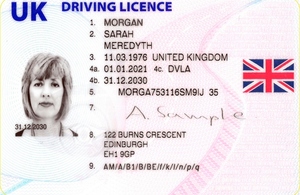£30m Waking Watch Relief Fund now open for applications
- £30m fire alarm fund will relieve residents of waking watch costs
- Funding targeted at cities with most high-rise buildings with unsafe cladding
- Builds on £1.6 billion funding to speed up removal of unsafe cladding on eligible buildings
Tens of thousands of residents in high-rise buildings can now access financial support to make their buildings safer while they wait for remediation work to complete, the Housing Secretary Robert Jenrick has announced as the Waking Watch Relief Fund opens today (31 January).
The £30 million fund will protect leaseholders from the high costs of Waking Watches, where a building is continually patrolled in case of a fire, by providing financial support for fire alarms, which will also make buildings safer in the long term.
The fund will be distributed through councils, regional authorities and directly through the Ministry of Housing Communities and Local Government, depending on the location of the building. The funding is available for buildings across England, with £22m targeted to the cities with most high-rise buildings with unsafe cladding, including Manchester, Birmingham and Leeds.
Buildings over 18m with unsafe cladding systems and where Waking Watch costs have been passed on to leaseholders will be eligible.
Housing Secretary Robert Jenrick said:
We know many people are anxious about the costs of waking watches, which was always only intended as an interim measure while historic safety issues were fixed.
This fund will relieve the financial pressure on residents in these buildings and ensure they will be kept safe. I encourage those who are eligible not to delay and start their applications swiftly so we can distribute the funds as quickly as possible.
The Responsible Person (RP) – the person or business responsible for ensuring the safety of residents in their building – can apply for the fund and provide the evidence needed. The Responsible Persons are encouraged to speak to their local Fire and Rescue Service about the installation of the fire alarms in their building and to keep leaseholders informed.
The criteria for the fund have today been published, setting out which buildings are eligible for funding, the evidence needed to apply and how applications will be assessed, as well as the way the funding is provided.
MHCLG will work closely with councils and Fire and Rescue Services on the delivery of the fund.
The fund is not a substitute for swift remediation of unsafe cladding – for which the Government has provided £1.6 billion in financial support.
This builds on steps the Government has already taken to support leaseholders, including securing an agreement that owners of flats in buildings without cladding do not need an EWS1 form to sell or re-mortgage their property – benefitting nearly 450,000 homeowners.
These measures are part of the government’s commitment to improve the safety of buildings across the country which will be enshrined in law through the Building Safety Bill in 2021.
Around 95% of the highest risk buildings with unsafe cladding similar to that found on Grenfell Tower have been made safe or have work underway compared to a year ago; with 159 buildings starting work last year compared to 90 in 2019 – representing more buildings on site with remediation work in 2020 than at any point previously.
Notes to Editors:
The Waking Watch Relief Fund will be available to all eligible buildings in England. £22 million of the £30 million funding available has been allocated to the eight metropolitan areas estimated to have the largest number of eligible buildings across England. These areas are:
- Greater London
- Greater Manchester
- Birmingham
- Leeds
- Liverpool
- Bristol
- Newcastle
- Sheffield
The remaining £8m of the fund will be centrally administered and is available to buildings across all other areas of England.
The document outlining the average cost of waking watch per building is available here.
The ‘Responsible Person’, is the person, group, company or other entity that is responsible for ensuring the safety of occupants in their building from fire.
